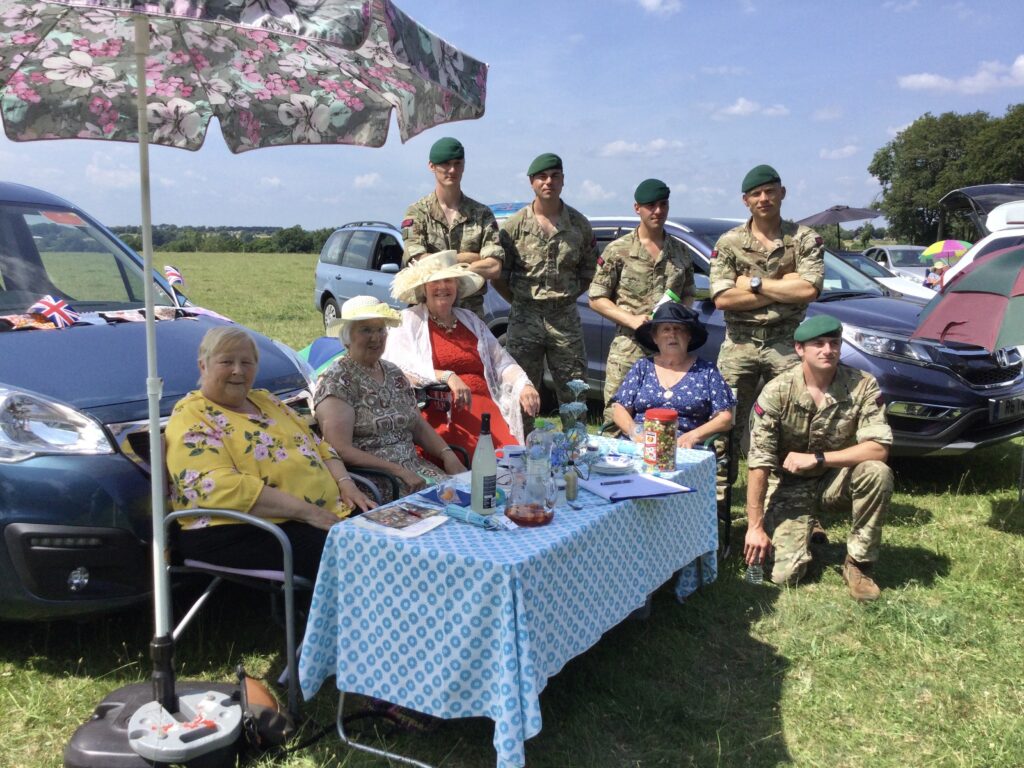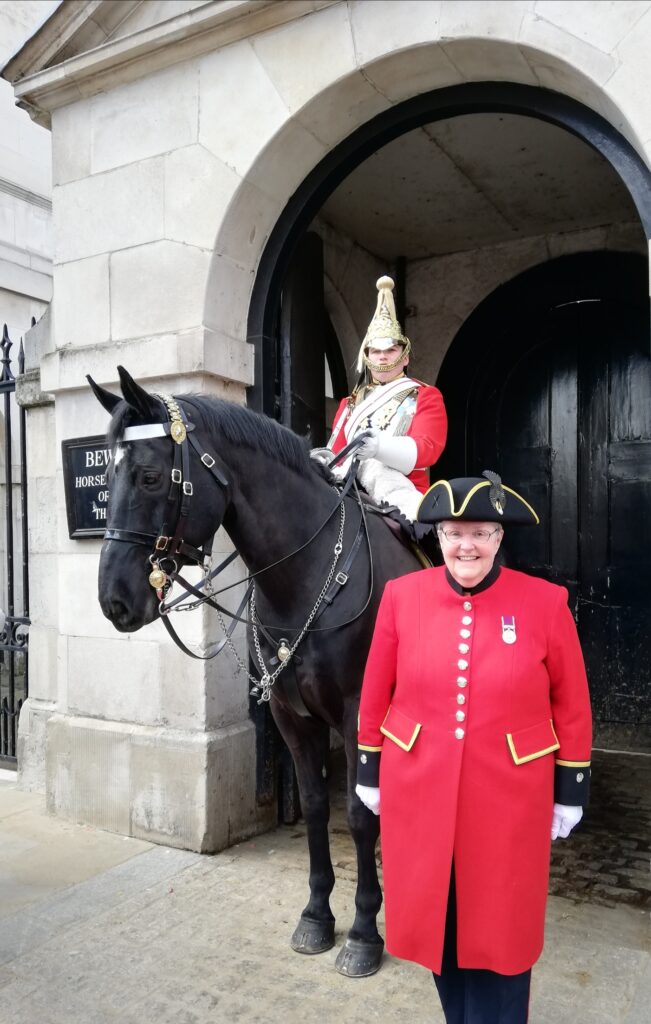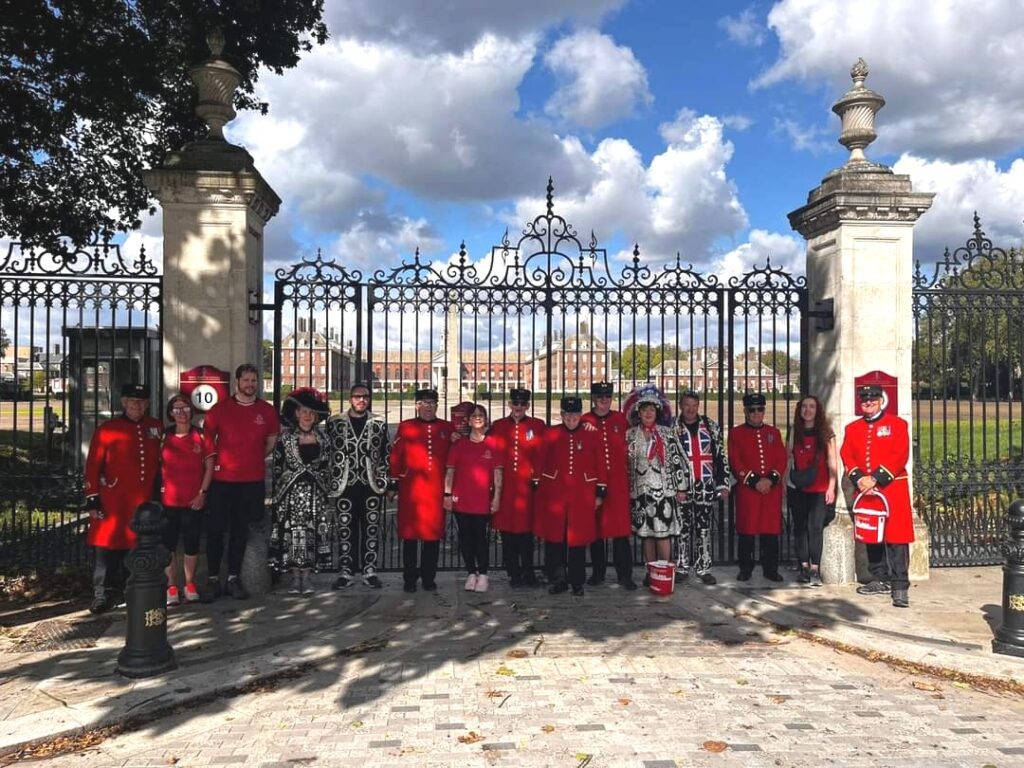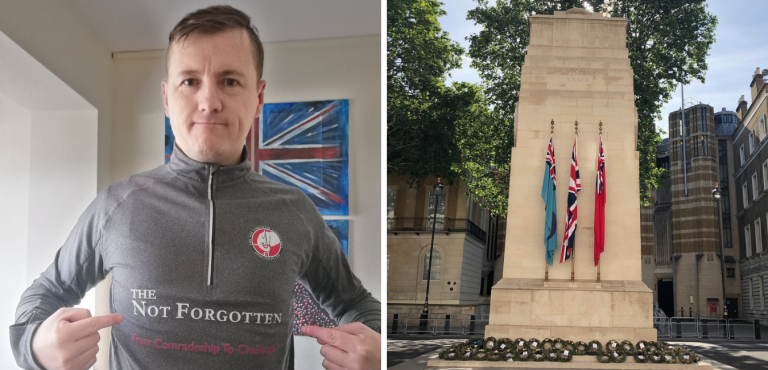International Women’s Day: Jan’s story
Janet Brodie-Murphy (better known as Jan) joined the Women’s Royal Army Corps (WRAC) aged 20, stepping almost by accident into a career which she loved. Across 23 years’ service in the UK and Germany Jan worked her way up to Major and played her part in seismic institutional shifts in the role and treatment of women in the Army. More recently she has made her mark as one of only sixteen female In-Pensioners at the Royal Hospital Chelsea. She tells us her story…
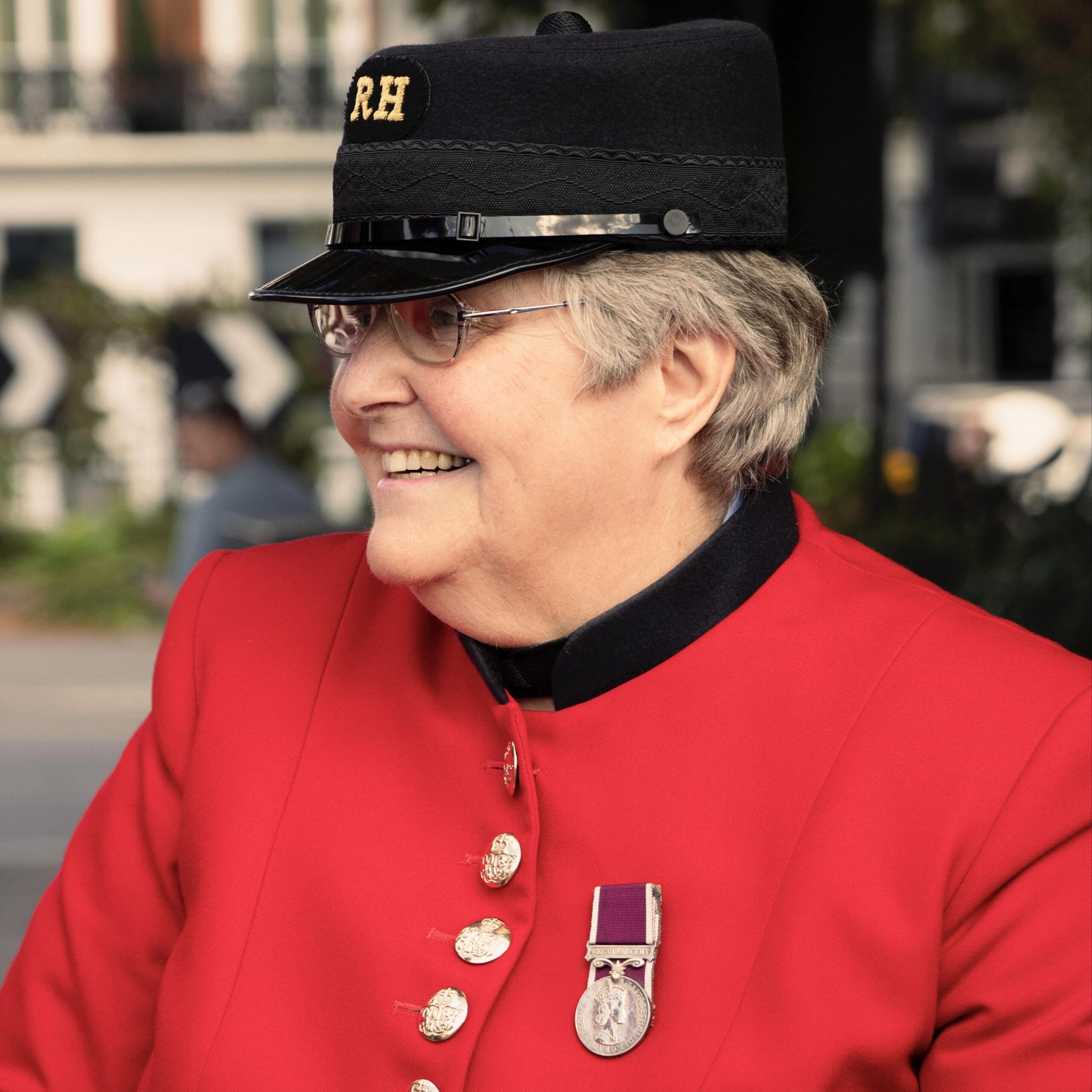
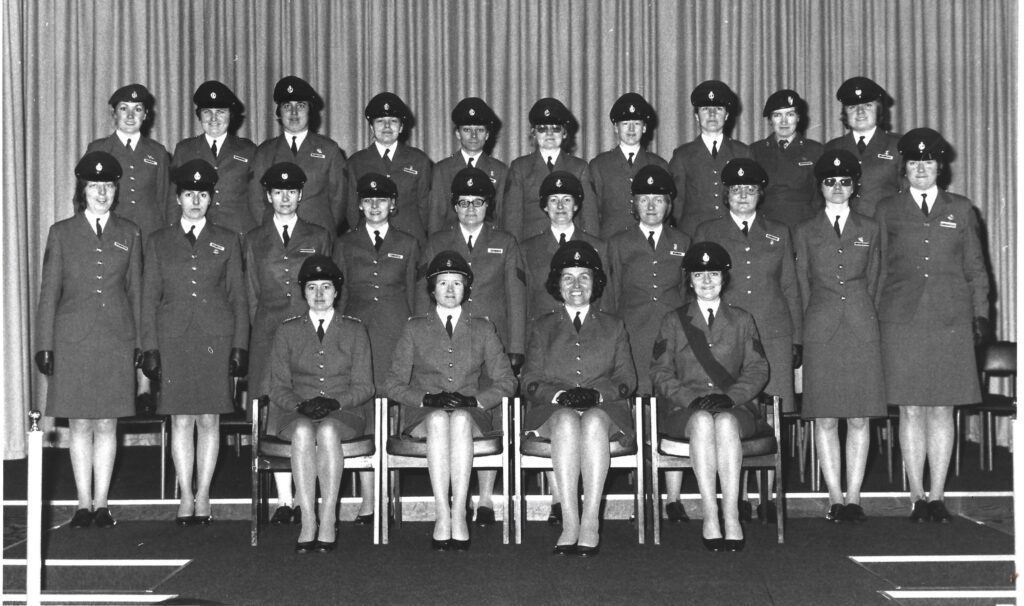
“I hated school and left with no qualifications” Jan told us. “Then went to catering college where I was completely uninspired, until in the Bernie Inn pub, where I worked on a Saturday, I met a Warrant Officer from the Army Recruiting Office in Worcester… and within weeks found myself at WRAC Centre in Guildford, starting out on a career which I absolutely loved”.
A likeable, humorous, and determined hard-grafter who seizes every opportunity to get the most out of life, Jan has a deep-held belief that “women are so much better than they think they are”. Her first-hand perspective on how female soldier’s lives have changed over the past decades is fascinating. When she first enlisted in the 1970s women could only serve if they were unmarried, and pregnancy meant immediate discharge. They could not easily earn a commission and served in non-combat roles such as clerical, stores and stewardessing.
Jan herself was a Staff Clerk for nine years, then trained as an Army Welfare Assistant, a new role opened to women which she did enjoy. But it was in 1984 that she gained her Commission, became OC (Officer in Charge) of her own WRAC platoon and could really get her teeth into things. After tours as Second in Command of Station Admin at RAPC Worthy Down and training Warrant Officers, SNCOs and JNCOs at WRAC Centre, Jan was promoted to Major in 1990 and posted to Germany in as Officer Commanding 29 Company WRAC, HQ BAOR, witnessing the final months of the Cold War.
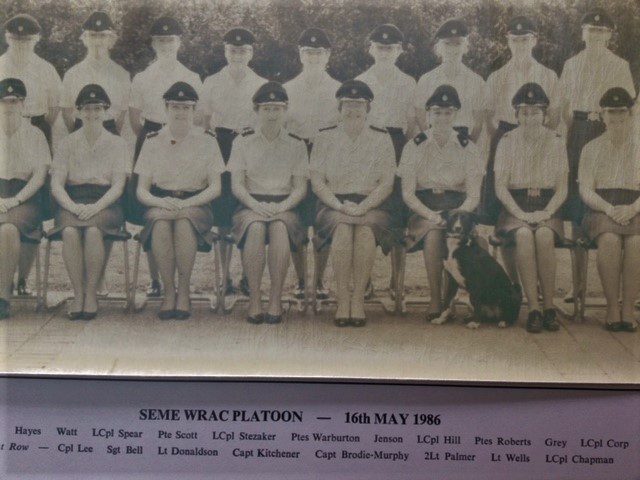
“There was a corner turned during my career. Women had previously been restricted to distinct roles as part of the WRAC, very separate to the men. Then suddenly [with the disbanding of the WRAC in the early 90s] women were being integrated into the regular corps and were basically seen as a giant pain in the backside. You had women, newly commissioned officers, coming in and posted as assistant adjutants into areas where they had never been before and had their male colleagues and superiors literally telling them “We don’t want you here”.
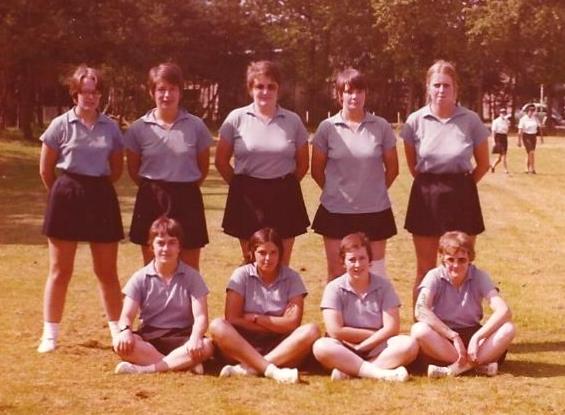
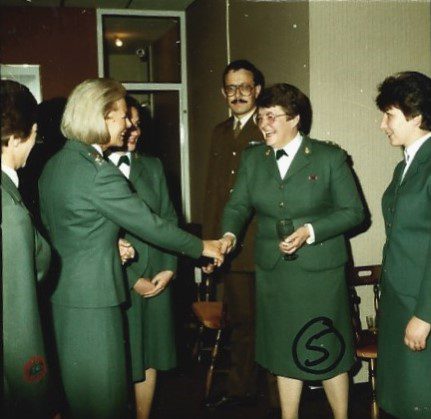
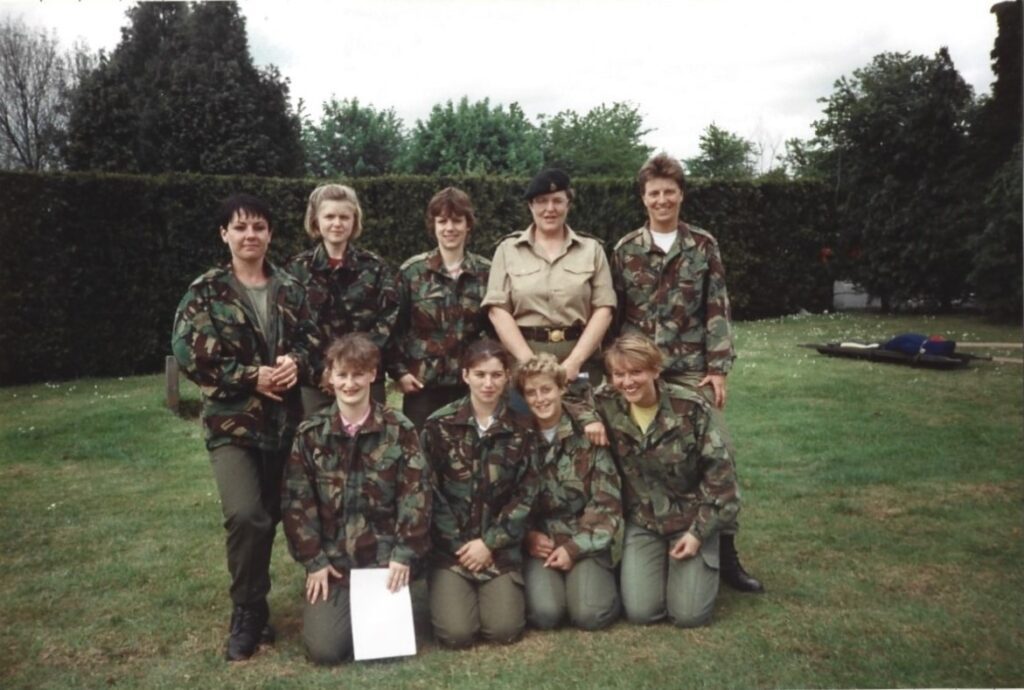
As the WRAC was dismantled and servicewomen were transferred to their corresponding ‘male’ corps, Jan was first OC responsible for the establishment of unisex accommodation on her German unit – at all ranks even in the Sergeants Mess. “It was a slow process. We’re talking about dismantling an institution constructed in World War Two, shifting to a unisex company where women could train, serve, and live alongside men”. Jan recalls distinctly those at the highest levels declaring the integration “not a good idea”, but she thinks of it as one of the proudest achievements of her career: “A lot of people did not want it, but it had to happen.”
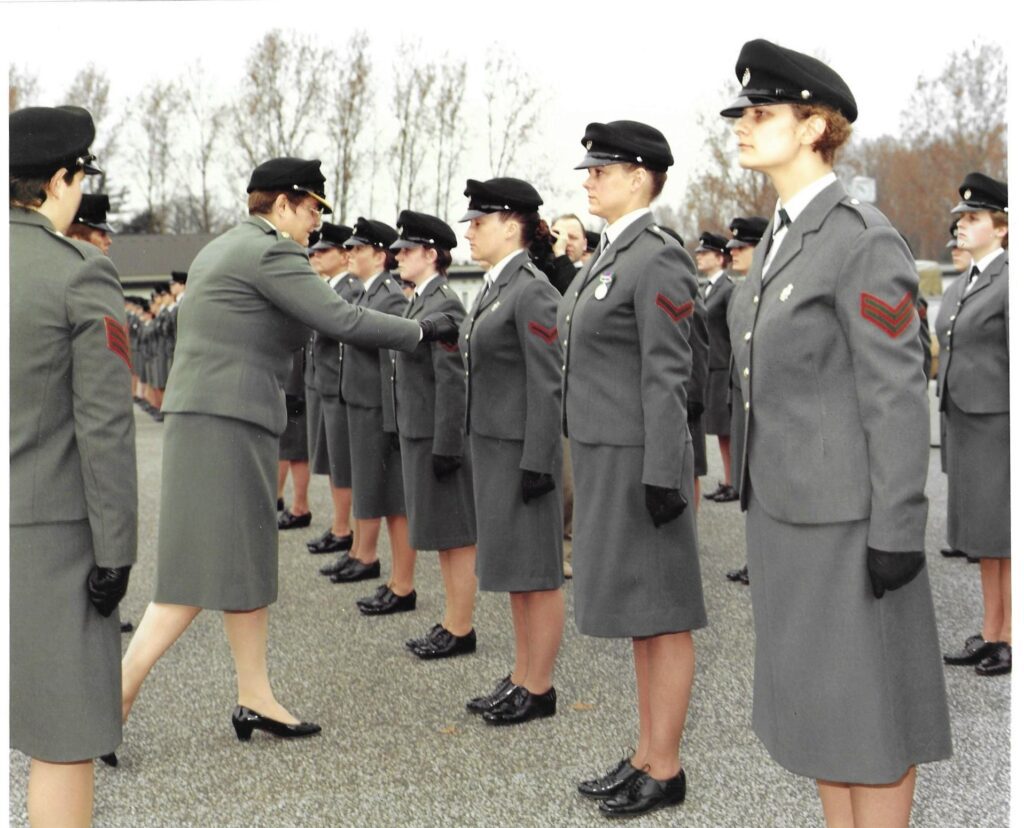
Even as integration took place and rules changed to allow married and pregnant women to continue serving, there was confusion and unease when those in charge had to adapt. “There were men who genuinely couldn’t get their head around having to work alongside a pregnant woman – and to be honest it wasn’t just the men: many of the women in charge were unmarried and not living a ‘normal woman’s life’ so had little sympathy with women now juggling a service career with their young families.”
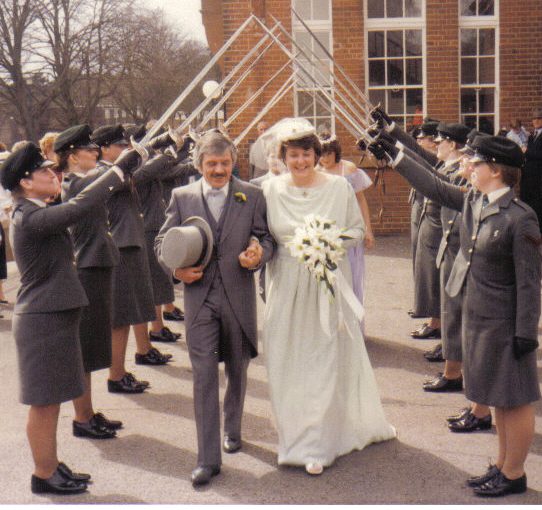
At the same time other women who had fought the army patriarchy their whole career could be very ‘anti-men’, barring husbands from attending as guests at Mess events. Meanwhile the system was still flawed when it came to situations like posting both a husband and wife to Iraq leaving – theoretically – no parent behind with their young child. “These were completely new dilemmas in a centuries-old institution. There are still things that worry me about it now, but we have come such a very long way”.
[Jan’s wedding in 1984 – “My girls had been trained in sword drill to give me an arch as I came out of church. Our RSM was a star as WRAC were not at that time permitted to carry out sword drill. A lovely touch for my wedding and a total surprise!”]
Jan’s philosophy that “It’s easy to sit back and be a nobody; what you need to do is work hard and be a somebody” has clearly served her well. The stand-out moments of her career include being involved in the Queen’s Silver Jubilee Festival of Remembrance in 1977, and having to produce all the paperwork and parade instructions for the Silver Jubilee at the last minute on an ancient Gestetner machine when MOD personnel went on strike. But her proudest achievement was becoming a Major in command of her own company – the very company where she had served as a Private twenty years before.
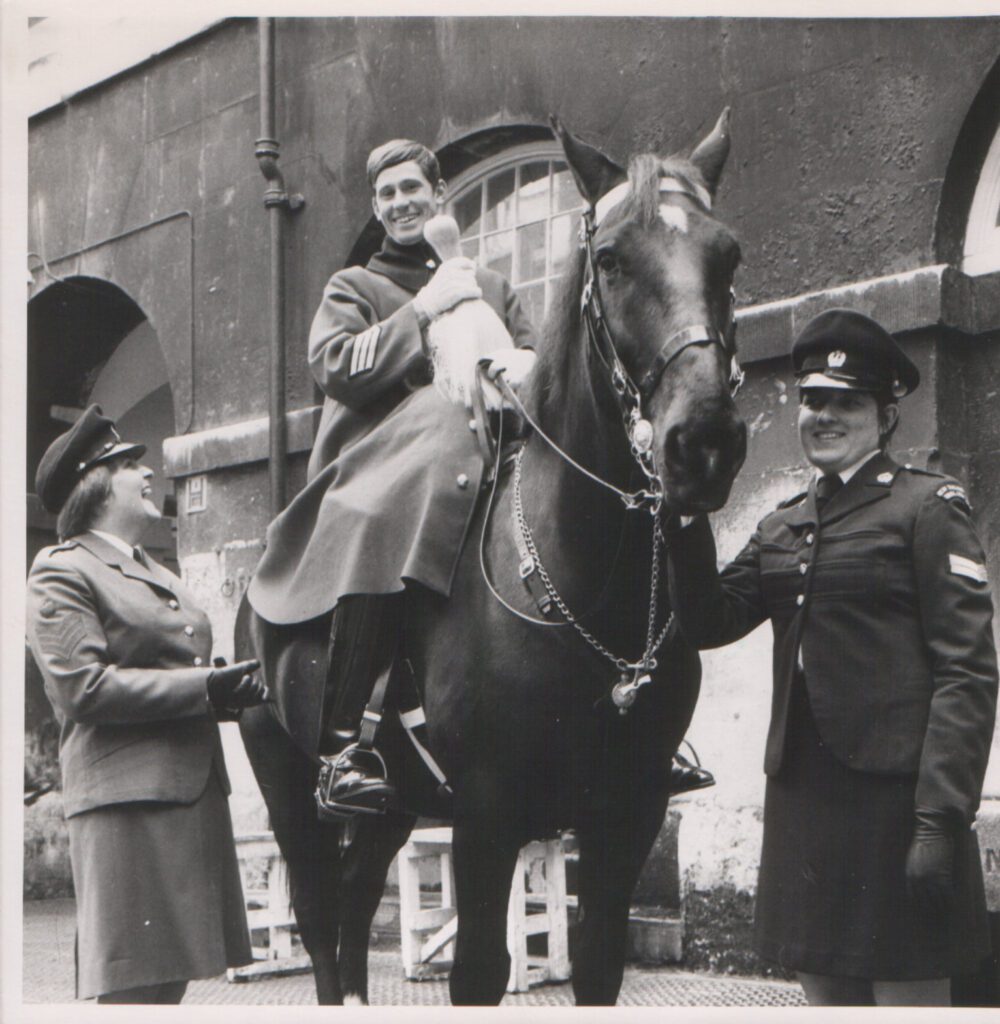
“My Mum was always telling me I was impulsive, and that joining the Army would never last… 23 years later having served in the UK and Cold War Germany and reached the rank of Major, I think I had proved her wrong!”
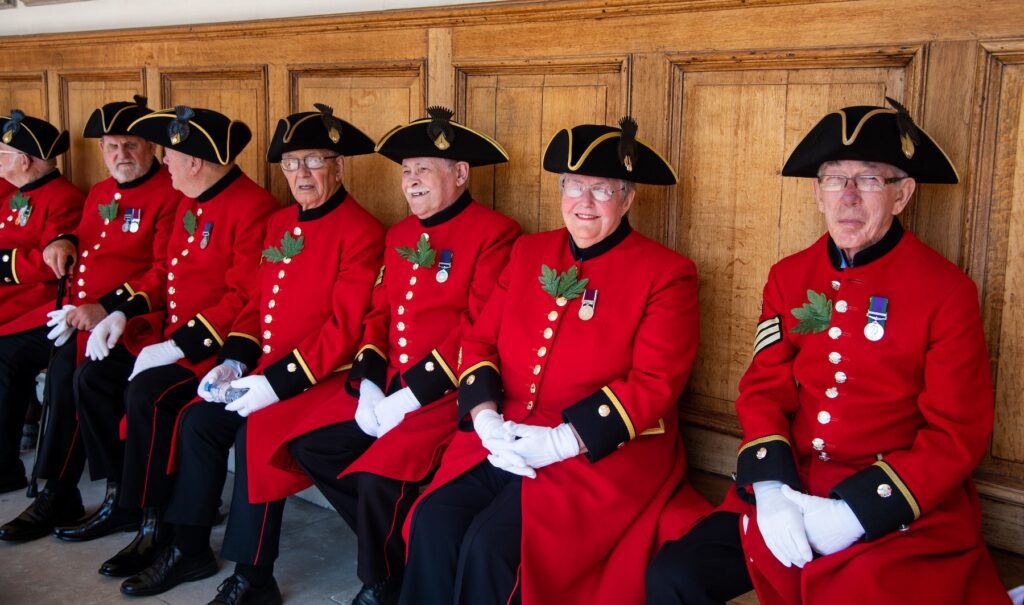
Since leaving the Army Jan opened and ran a successful florist business, but after losing her husband in 2016 and experiencing her own health problems, she applied in 2022 to join the Royal Hospital Chelsea and is now relishing her new life there. Volunteering for all sorts of events, discovery a flair for pottery, singing in the Pensioners choir and acting as an enthusiastic ambassador for the Royal Hospital: “It’s a unique experience and a huge privilege” she says.
Jan finishes our conversation with advice for young women starting out in their military careers today. “Be determined to succeed”, she says. “Work long and hard and seize every opportunity you are offered. You can achieve anything you set your mind to – there is no such word as can’t. It’s sometimes hard to get acceptance by the male populace – as a person rather than a woman, but you need to stand up and be counted. Fight and shine through.”
Which without doubt is what Jan herself has done.
